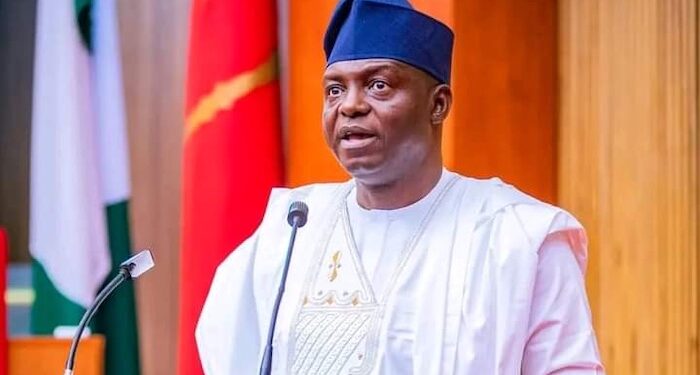The Nigerian government has reached a significant milestone in its efforts to combat poverty and provide social protection services, with plans to target 16 million of the country’s most vulnerable citizens. This announcement comes on the heels of a report by the National Bureau of Statistics (NBS), which revealed that approximately 90 million Nigerians, or about 42% of the population, live in poverty.
Professor Nentawe Goshwe Yilwatda, Nigeria’s Minister of Humanitarian Affairs and Poverty Reduction, shared the country’s achievements during the World Bank’s launch of the “State of Social Protection Report 2025: The 2-Billion-Person Challenge” on Monday. The report highlighted that two billion people in low-income and middle-income countries are either inadequately covered or entirely missed by social protection systems, a gap Nigeria is actively addressing.
Addressing Poverty with Social Protection Services
Yilwatda discussed Nigeria’s efforts to alleviate poverty through social protection services, citing the country’s ongoing initiatives to help the nation’s poorest populations. According to the minister, “We are targeting 16 million out of the 90 million poor Nigerians, which is a significant achievement for the country.”
He noted that a majority of the country’s impoverished population resides in rural areas. In fact, 68% of the vulnerable people receiving aid under the government’s social protection schemes are from rural communities, while the remaining 32% come from urban areas.
A Decade of Progress in Social Protection
Nigeria’s social protection journey began in 2015, with the World Bank’s support for the establishment of the country’s social protection system. Initially, Nigeria had no formal social register. However, by today, the country has compiled a database of 71 million individuals on its social register, which forms the foundation for all its social services.
“This social register has been key in ensuring financial inclusion, particularly for those in remote communities,” said Yilwatda. He highlighted that the development of bank accounts and digital wallets for beneficiaries has significantly contributed to the growth of fintech services in the country. This development has deepened access to financial services, providing new opportunities for young people to engage with technology and boost income in rural areas.
Expanding Cash Transfers and Reaching More Households
Yilwatda also discussed the growth of Nigeria’s conditional cash transfer program, which has expanded rapidly since its inception. The program began with only two million households, covering less than 10 million individuals. Today, it has grown to reach 15 million households, benefiting over 60 million people.
He emphasized that 65% of the household leaders receiving aid are women, a group that faces a disproportionate risk of poverty. By targeting women, the government has significantly improved financial inclusion for women in rural communities.
Tackling Education and Youth Empowerment
The Nigerian government is also using social protection mechanisms to address educational challenges, particularly the issue of out-of-school children. Yilwatda shared that the government’s school feeding program, which helps ensure that children receive at least one meal a day at school, has grown from serving five million pupils three years ago to 9.6 million today. The program is now set to expand further to reach 11 million children in public primary schools across the country, with additional support from state governments.
To improve transparency and traceability, the government is leveraging digital infrastructure to create digital identities for beneficiaries. Through geo-tagging, the government aims to improve its response times and increase the transparency of its social protection services, ensuring that resources reach the intended individuals and communities.
Collaboration with the Private Sector for Job Creation
Yilwatda also spoke about the government’s collaboration with the private sector to create job opportunities for Nigeria’s youth. The government has launched the “Skill-to-Wealth” program, in partnership with the World Bank and other development institutions, to help young Nigerians develop skills that will enable them to contribute to the country’s economy.
“We are working with the private sector to raise funds that will support social services and create jobs for our young population,” the minister said, emphasizing the need to integrate Nigeria’s youth into the workforce and boost economic growth.
Broader Social Protection Initiatives
In addition to cash transfers and school feeding programs, Nigeria’s social protection strategy includes a wide range of initiatives. These include pension schemes for workers, the Nigeria Social Trust Fund for protecting workers affected by job-related injuries or deaths, and the Industrial Training Fund, which provides skills training and job placement services for young people.
Yilwatda concluded by stating that the country’s approach to social protection is rooted in data-driven decision-making, ensuring that the government can effectively target and support those most in need. He also reiterated the importance of the collaboration between the federal government, state governments, and the private sector in the fight against poverty.
Nigeria’s commitment to social protection services has made it a leader in the region in terms of poverty reduction and social welfare, and the government remains focused on expanding these services to reach even more vulnerable citizens.


